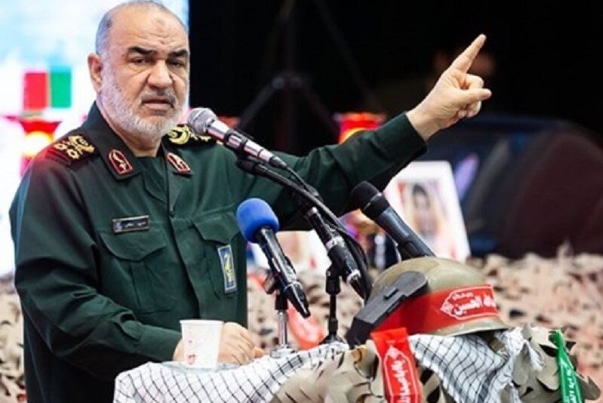Brigadier General Ebrahim Rostami, a senior officer in the Islamic Revolutionary Guard Corps (IRGC), has stated that his country is prepared to attack Israel’s Dimona nuclear reactor. He also cautioned that Tehran possesses a surprise of greater importance than nuclear weapons.
Rostami is the former head of international relations for the IRGC. “The IRGC has conducted military exercises simulating targeting the Dimona reactor inside Israel,” he said on Tuesday.“Iran has a big surprise that is more important than nuclear weapons, and we will keep this surprise hidden until zero hour comes.”
However, Iranian government spokeswoman Fatemeh Mohajerani reiterated Tehran’s rejection of any regional war and regional escalation. Mohajerani stressed that Iran “does not give up on its national interests… [and that] the recent Iranian response in Israel was a small portion of Iran’s military and missile power.”
She added that Iran is prepared to repeat larger and more widespread attacks at the appropriate time and place. “This will be without hesitation or leniency, and not merely reactive.”
It was earlier reported that, a senior commander of Iran’s Islamic Revolution Guard Corps (IRGC) has issued a stern warning, declaring that any hostile actions against Iran would be met with a “harsh and regret-inducing response” from the elite military force and other branches of the Iranian armed forces.
Iran Press/ Iran news: Brigadier General Amir Ali Hajizadeh, who leads the IRGC’s Aerospace Division, delivered the message on Sunday following widespread praise from Iranian officials and citizens for Iran’s recent military operation against Israel, known as Operation True Promise II.
READ ALSO:
Hezbollah will attack everywhere it wishes in occupied lands
Hajizadeh emphasized that the IRGC Aerospace Force, along with other segments of Iran’s armed forces, remains “ready and alert, with open eyes,” prepared to strike back decisively at any perceived missteps by adversaries. He warned that such actions would target the “rotting and decaying body” of the enemy.
Reflecting on Operation True Promise II, Hajizadeh underscored the operation’s success, attributing it to a unified stance among Iran’s leadership, including the approval of the Supreme National Security Council and the support of the presidency. The operation was also conducted under the guidance of the Commander-in-Chief of Iranian armed forces.
The operation, launched on October 1, saw Iran fire two hundred ballistic missiles at Israeli targets, as a retaliatory measure. Tehran’s missile strikes was a direct response to Israel’s recent aggressive actions in Palestine and Lebanon, as well as sabotage activities within Iran.
Iranian officials have warned that any further Israeli military responses would be met with even more severe retaliation.


